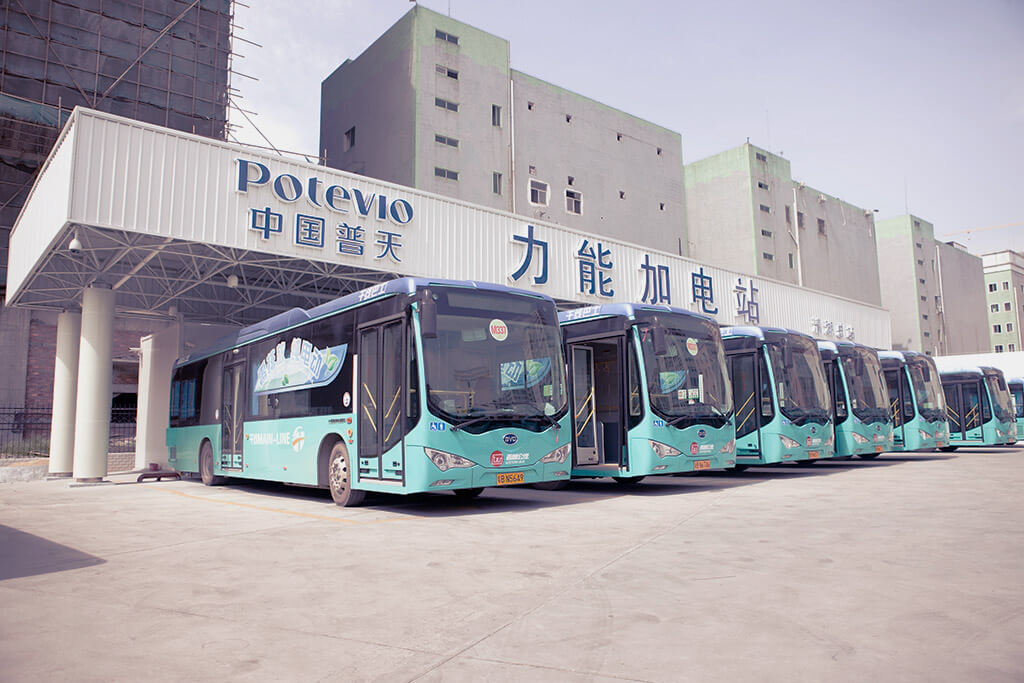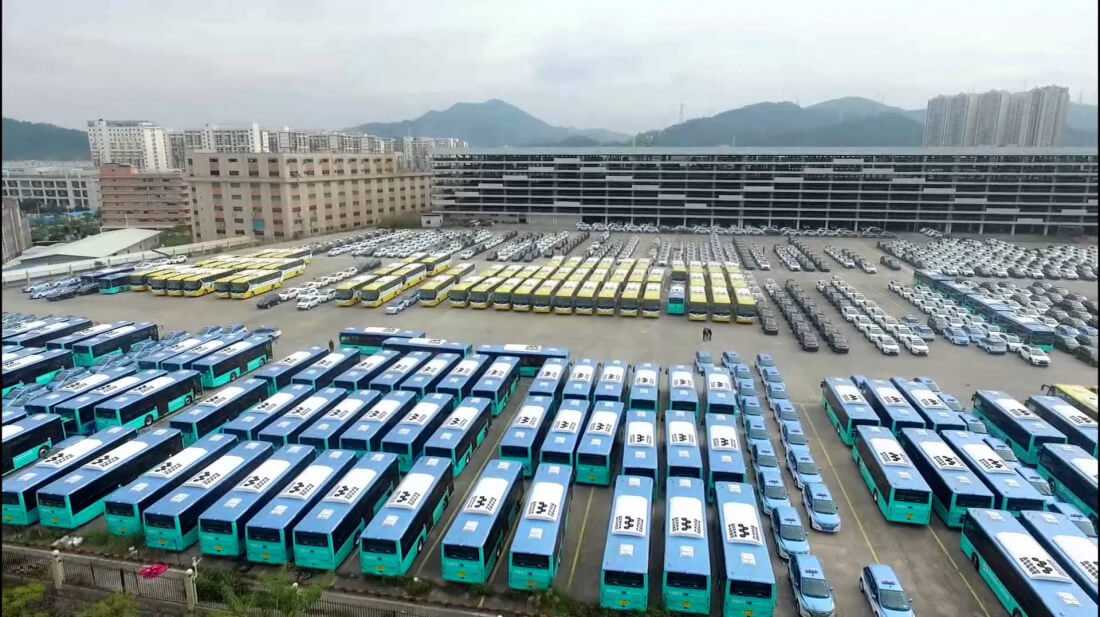
If you've felt the world hasn't done enough to push the electric revolution forward to combat climate change, China might be able to change your mind. One of the most populated cities in the country with roughly 11.9 million citizens, Shenzhen has recently announced the completion of their fully electric fleet of 16,359 public transportation buses.
Shenzhen has managed to hit the milestone ahead of schedule, with previous estimates suggesting work on the city's new bus fleet could extend well into 2018.
Shenzhen officials believe this change could save the city the "energy equivalent of 366,000 tons of standard coal" while reducing carbon dioxide emissions by an impressive 1.35 million tons.
Of course, simply swapping out gas-powered buses for electric-powered alternatives doesn't do the city much good on its own. In the interest of keeping their sizable fleet up and running, Shenzhen has also constructed about 8,000 individual bus charging points spread across 510 charging stations throughout the city.
According to one Fast Company report, over 80 percent of Shenzhen's new buses have been manufactured by a single company - BYD (Build Your Dreams). As the company has reportedly surpassed Tesla to become the largest electric vehicle manufacturer in the world, it comes as no surprise that the city has chosen to take advantage of its services.

Shenzhen doesn't plan to leave well enough alone, though - its taxis are also due for an electric overhaul in the near future. As of writing, 62.5 percent (12,518) of all taxis in the city are electric but government officials plan to increase that number to 100 percent by 2020. This is certainly an ambitious plan but it's also one the city's head of public transport, Zheng Jingyu, seems confident in.
"We will gradually replace the existing fuel-powered cabs with electricity-powered ones and complete the target by 2020, or even ahead of schedule," Jingyu said in a statement.
https://www.techspot.com/news/72505-every-public-bus-china-shenzhen-now-powered-electricity.html